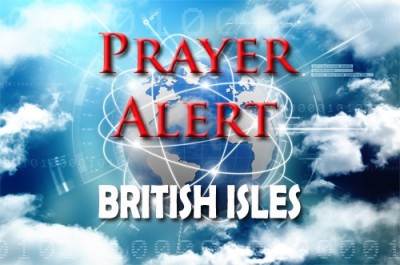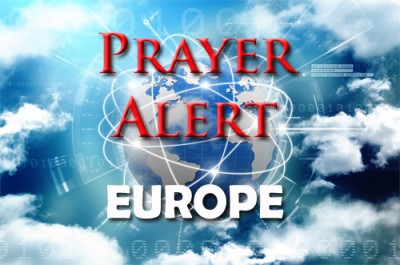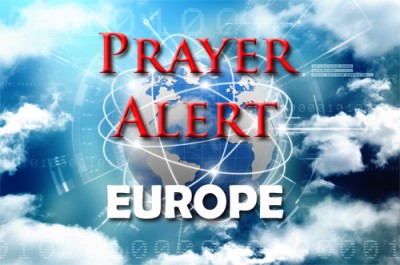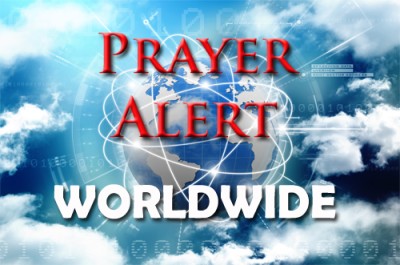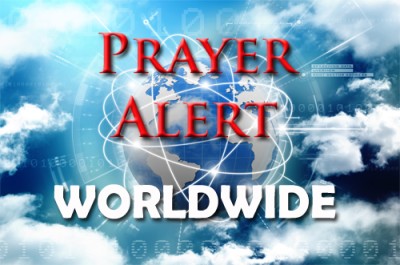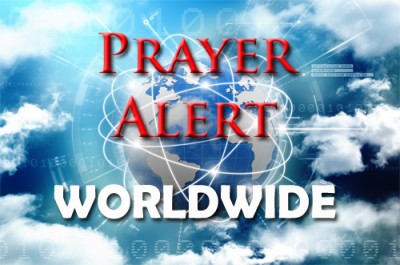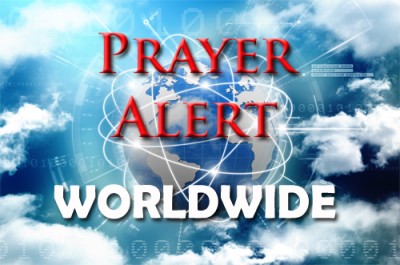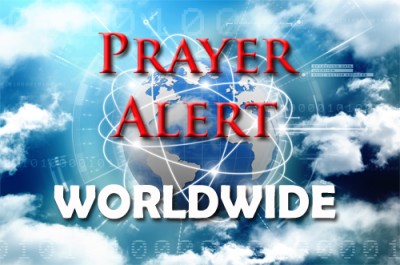Missing teenager found in France
14 Dec 2023A 17-year-old English boy, Alex Batty, who went missing in Spain in 2017, has been found in the town of Revel, France, six years after his disappearance. He is in good health, and is now awaiting the arrival of British authorities. His mother and grandfather, who took him on holiday and do not have parental guardianship, remain wanted in connection with his disappearance. Alex had been living in a spiritual community in Morocco, as his grandmother, his legal guardian, had previously suggested. He decided to leave the community and embark on his own path, eventually making his way to France. After walking through the Pyrenees foothills for days, he was spotted by a local delivery driver who picked him up. The area is known for attracting people in search of alternative lifestyles.
Ukraine war to continue - Putin
14 Dec 2023On 12 December Vladimir Putin asserted that peace will elude Ukraine until Russia achieves its unchanging objectives, despite nearly two years of heightened tensions with the West due to the ongoing conflict. During a lengthy year-end news conference, Putin offered some insight into Moscow's "special military operation" in Ukraine. He dismissed the idea of a second wave of reservist mobilisation, stating that there are already 617,000 Russian soldiers in Ukraine, including 244,000 conscripts supporting professional military units. He emphasised Russian military advances in Ukraine, while accusing Kyiv of sacrificing its troops to gain Western aid. Putin, who has been in power for nearly 24 years, held this press conference as Ukraine seeks more US aid amid a faltering counteroffensive and waning Western backing. It was the first time he had faced questions from Western journalists since the conflict began. He also took questions from ordinary Russian citizens; reportedly at least two million questions were sent in.
On 12 December, Armenia and Azerbaijan took a significant step forward by exchanging prisoners. This move follows years of conflict over the Nagorno-Karabakh region, which Azerbaijan annexed in September, resulting in most of its population fleeing to Armenia. The exchange, facilitated by the International Red Cross, involved the release of 10 Azerbaijani prisoners and the return of 15 Armenian captives. This act of goodwill was welcomed by the EU and the USA, who have been trying for years to persuade the two countries to sign a peace treaty. The exchange follows another positive move, an announcement on 7 December by Azerbaijan that it would not object to Armenia hosting COP29 in 2024: see
On 12 December, the UN General Assembly overwhelmingly passed a resolution calling for an immediate ceasefire in the Israel-Hamas conflict. With 153 votes in favour, 10 against (including the United States and Israel), and 23 abstentions (including the UK and Germany), the resolution emphasises the need to protect civilians and civilian infrastructure, provide humanitarian assistance, and seek a peaceful resolution to the ongoing conflict. It also calls for an end to the use of force and the resumption of negotiations. It is reported that the conflict has now led to over 18,600 civilian casualties in the Gaza strip, 70% of them women and children. The vote serves as a strong international call for an end to hostilities and a return to peace talks. On 8 December, an almost identically worded resolution proposed at the UN security council was vetoed by the USA. There is a sense that Joe Biden’s administration is becoming increasingly isolated in its unconditional support of Israel’s actions.
COP28: historic move away from fossil fuels
14 Dec 2023At the end of COP28, nations have made a historic move by explicitly targeting the use of fossil fuels for the first time. The talks in Dubai came close to collapse, but in a dramatic turn-around, nations agreed to ‘transition away’ from coal, oil, and gas, although some small island nations felt the deal was rushed. The agreement departed from earlier, stronger language advocating for a ‘phase-out’ of fossil fuels, probably because of pressure from oil-producing nations. The deal recognises the need to transition away from fossil fuels ‘in a just, orderly and equitable manner.’ It also acknowledges that global emissions could peak before 2025. Despite criticisms and challenges for a variety of reasons, the deal (which is seen as a victory for Sultan al-Jaber, the conference’s president) was accepted by all participating nations.
COP28: illegal wildlife trade a huge threat
14 Dec 2023During COP28, a panel discussed the urgent need to address the vast and damaging illegal wildlife trade. The panel highlighted the severe consequences of this trade, which ranks as the fourth-largest illicit trade globally, valued at over $23 billion annually, mainly controlled by criminal networks. It poses a significant threat to biodiversity, ecosystems, and climate. It disrupts natural balance, impacting global sustainability. This illegal trade is transnational and organised, generating enormous profits; it was pointed out that banks have regulatory obligations to combat financial system abuse by such criminals. DP World, a major global supply chain solutions provider, revealed that a high portion of illegal wildlife trade products is transported by the maritime sector. The panel called for greater cooperation among stakeholders, including the financial sector, transport industry, and law enforcement, to combat this critical issue.
Nicaragua / Guyana border dispute is reignited
14 Dec 2023Guyana's vice-president, Bharrat Jagdeo, has issued a strong warning that his country will defend itself ‘by all and any means’ amid growing concerns that Venezuela's president Nicolás Maduro may attempt to annex a portion of Guyanese territory, particularly the mineral-rich Essequibo region. The current borders were agreed in 1899 after international arbitration. Guyana, a small nation, has historically relied on diplomacy and international law but is now exploring defence cooperation with allies, including the USA. Its army, with only 4,000 active personnel, would potentially face Venezuela's well-equipped, Russian-backed forces of over 350,000. Jagdeo also expressed concerns that the decision by the USA to ease sanctions on Venezuela may have emboldened Maduro in his threats. The border dispute has intensified since oil was discovered off Guyana's coast in 2015. Many believe that Maduro is seeking to shore up support domestically before the elections in 2024. Washington expects him to ensure a ‘free and fair’ vote as part of the sanction relief deal.
The Chinese military is increasing its capability to disrupt vital US infrastructure, such as power and water utilities, communications, and transportation systems. Hackers linked to its People's Liberation Army have infiltrated around two dozen critical entities over the past year. Targets included a Hawaiian water utility, a major West Coast port, an oil and gas pipeline, and even an attempted breach of Texas's independent power grid. While these intrusions did not impact crucial industrial control systems or cause disruptions, they indicate China's intent to complicate US military efforts in the Pacific region during a potential conflict, particularly in the context of Taiwan. This cyber campaign, known as Volt Typhoon, emerged about a year ago, highlighting the increasingly antagonistic relationship between the two countries. These actions underscore China's evolving cyber strategy from espionage to potential infrastructure disruption.
